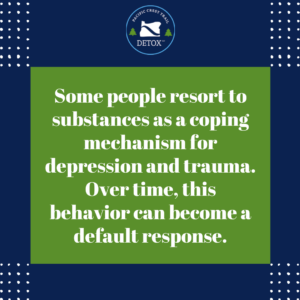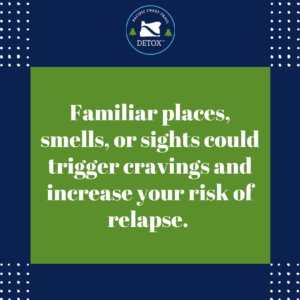Having to stay sober is no walk in the park. You’ll face triggers, your cravings will kick in, and your environment won’t always be the most supportive. There will be days you’ll think you’re good to go, and then someone will invite you to drink. Sustaining a sober life will be difficult, but remind yourself that it’s not impossible.
You can stay sober with some significant effort, dedication, and commitment. Ready to give fighting drug addiction another shot? Let’s dive in.

The Challenges of Sobriety
You’re more prone to relapse when there are challenges around you. To help you strategize against drug addiction better, here are the ones to look out for:
Physical Dependence and Withdrawal
One of the reasons why it’s so hard to quit is the physical dependence you may have on these substances. Your body has become dependent on substances, and abrupt withdrawal can lead to symptoms such as nausea, tremors, and insomnia during your attempts.
These symptoms are both physically and emotionally draining, and you may think you never want to experience them again.
Psychological Factors
Some people resort to substances as a coping mechanism for depression and trauma. Over time, this behavior can become a default response. Moreover, environmental triggers can make cravings even harder to resist.
When faced with triggering environments, it can be easy to relapse because you don’t know how to deal with these stressors differently.
Emotional Regulation
You may also recall turning to substances such as drugs and alcohol to cope with difficult emotions such as anxiety and anger. These substances interact with your reward system, so you reach out to them for immediate relief, calmness, or numbness.
Knowing these benefits firsthand and thinking about letting go of them can be difficult.

Social and Environmental Triggers
Apart from inherently personal experiences, your environment could also make it challenging to stay sober.
Social Pressure and Expectations
Social situations that involve peer pressure could be significantly difficult to navigate. You may recall gatherings where wine is on the table or parties where alcohol and drugs are prominent. Whether your peers directly invite you to consume these substances or not, these situations make it hard to quit.
Environmental Cues
Familiar places, smells, or sights could trigger cravings and increase your risk of relapse. Passing by a previous alley where you dealt drugs or hung out with friends for a joint may remind you of the days before recovery. If you have good memories of these, it may be tempting to return to these habits.
Lack of Support
A strong support system is crucial for long-term recovery. Battling addiction is hard when surrounded by family members who constantly discriminate or trigger you. It’s also easy to relapse if your loved ones do not understand the challenges you are going through while maintaining sobriety.
Moreover, criticism around you could cause feelings of isolation and frustration, which is demotivating to continue recovery.
The Psychological Battle
The state of your mental health also affects your ability to stay sober. Here’s how:
Mental Health Disorders
There is a significant overlap between substance abuse and mental health disorders. You may recall individuals with PTSD, bipolar disorder, and depression who use substances as a coping mechanism.
However, some drugs can alleviate symptoms of these disorders. Benzodiazepines, for example, are commonly used to relieve anxiety but can also be addictive.
Identity and Self-Perception
Addiction recovery involves a lot of lifestyle changes. You are now aware that drinking alcohol every time you’re stressed is bad. Your daily schedule is changing, and you’re avoiding your friends.
It might start to feel like you got everything wrong. This can lead to feelings of uncertainty, loss, and helplessness. You will want to escape, and the first solution on your mind may be more substances.
Feeling of Loss
Giving up a substance can cause a sense of loss as if you just lost a friend or a coping mechanism. Either way, the truth is you identified these substances as a comfort and escape. You will mourn these benefits, especially for stress and emotional relief.
Strategies for Overcoming Sobriety Challenges
It’s undeniably difficult to stay sober, but here are some strategies that could help you start right:
- Seek professional support. Consider therapy, counseling, or support groups to hear other insights and coping strategies.
- Build a healthy habit. Try engaging in exercise, mindfulness, or creative activities to manage your stress. A few minutes every other day will be of great help.
- Practice self-care. Get enough sleep, eat a balanced diet, and stay hydrated daily.
- Set realistic goals. Break down your goals into smaller ones, and celebrate each of your milestones.
Conclusion
From managing withdrawal symptoms, straying from social triggers, and struggling with a lost coping mechanism, it is hard to stay sober. However, by slowly seeking professional support, developing healthy habits, and taking care of yourself, you can begin to get past these challenges.
Remember that recovery is a long and difficult process. But if you’re ready to commit to a sober life or at least try to, contact us at Pacific Crest Trail Detox to start healing.


